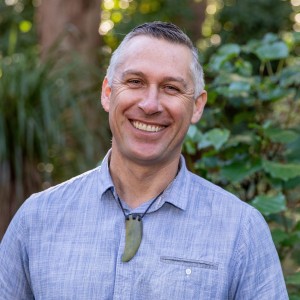By angela
In
2020-11-032020-11-03https://rhed.amsi.org.au/wp-content/uploads/sites/73/2020/06/amsi_rhed_v2-2.pngResearch and Higher Educationhttps://rhed.amsi.org.au/wp-content/uploads/sites/73/2020/06/amsi_rhed_v2-2.png200px200px
Associate Professor Maui Hudson, Te Kotahi Research Institute, University of Waikato

Te Kotahi Research Institute, University of Waikato
Maui Hudson is a member of the Whakatōhea, Ngāruahine, and Te Māhurehure Iwi in Aotearoa New Zealand. He is a member of the Whakatōhea Māori Trust Board and a number of other tribal entities. Maui Hudson is a founding member of Te Mana Raraunga Māori Data Sovereignty Network and the Global Indigenous Data Alliance. He is a co-convener of SING Aotearoa, a capacity building initiative for Indigenous Genomics, and organized the first SING Indigenous Genomics Conference in Hamilton, New Zealand earlier this year.
Maui co-authored the Te Mata Ira Guidelines for Genomic Research with Māori and it working on the Te Nohonga Kaitiaki Guidelines for Genomic Research with Taonga Species (Indigenous flora and fauna). Maui is a member of the Senior Leadership Team for Genomics Aotearoa and is part of a team developing Biocultural Labels to recognize Indigenous interests in digital sequence information. He also leads a new research programme focusing on Tikanga and Technology, Indigenous approaches to transforming data ecosystems.
| DATE | TIME | PRESENTER | VENUE | WATCH ONLINE |
|---|---|---|---|---|
| Wednesday 2 December 2020 | 6.00PM AEDT | Associate Professor Maui Hudson | Online | View lecture |
Genome related technologies can contribute to improving global health equity. To do so the genomic health divide must be kept in check and ultimately bridged to ensure that the lack of Indigenous genomic data does not adversely affect access to genome related health services.
Genome related technologies can contribute to improving social equity through biodiscovery and innovation. To do so the economic disadvantages must be minimized through recognition of Indigenous rights to genomic data as well as systematic use of robust access and benefit sharing agreements. Genome related technologies can contribute to understanding diversity. Diverse communities, whether that be environmental or social, are more interesting and resilient to change. Genome related technologies are increasingly dependent on data science and bioinformatics to process the huge amounts of data that they generate. Building capacity and capability in this field is a challenge, especially so for Indigenous communities who have low participation rates in STEM subjects. This talk will explore the Indigenous perspectives on issues of equity, diversity, and data science in the context of genomics and share examples of best practice and capacity building initiatives from Aotearoa New Zealand.